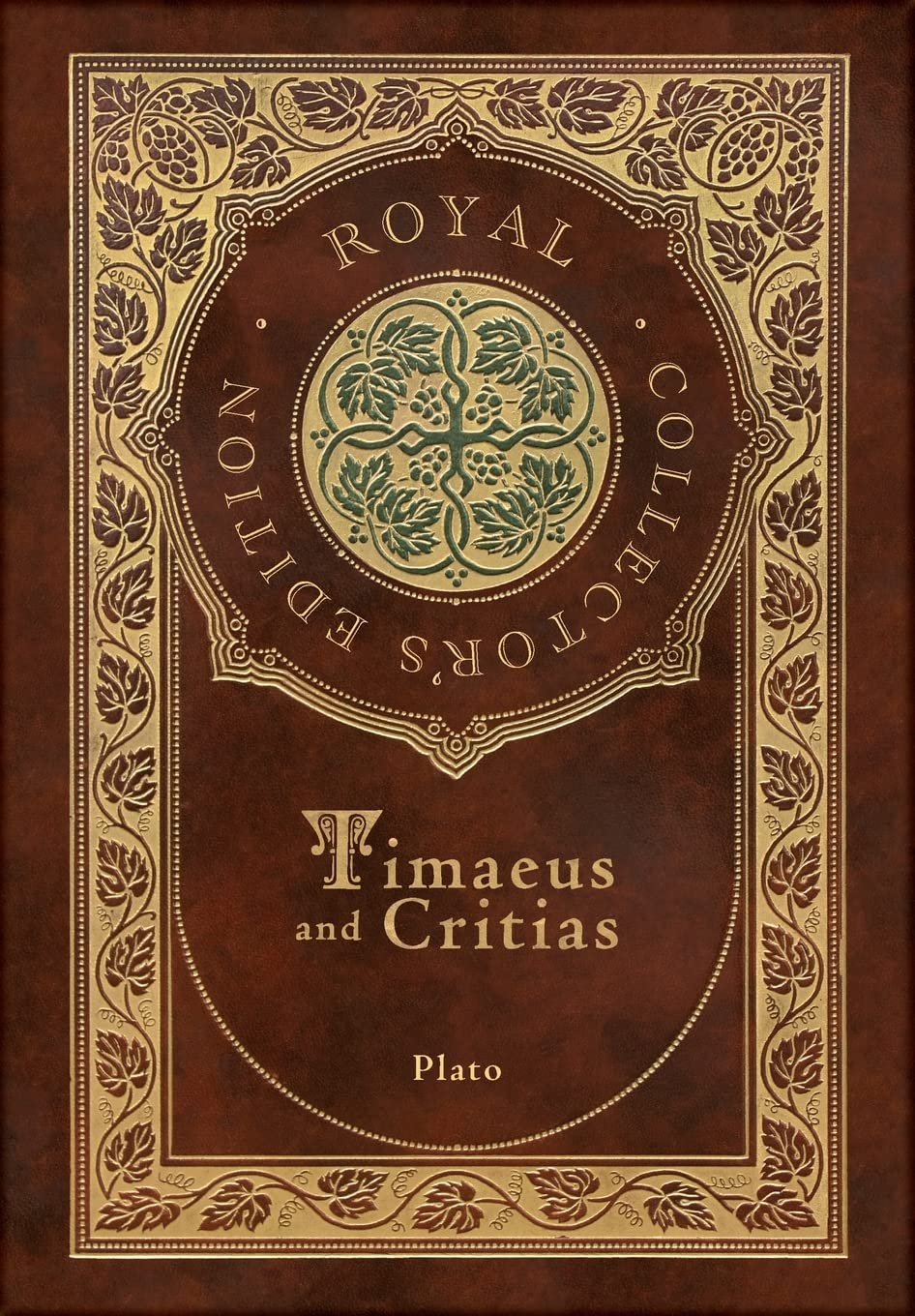1
/
of
1
Royal Classics
Timaeus and Critias (Royal Collector's Edition) (Case Laminate Hardcover with Jacket)
Timaeus and Critias (Royal Collector's Edition) (Case Laminate Hardcover with Jacket)
Regular price
€61,95 EUR
Regular price
Sale price
€61,95 EUR
Shipping calculated at checkout.
Quantity
Couldn't load pickup availability
Timaeus is one of Plato's dialogues, written c. 360 BC.
Timaeus begins with a distinction between the physical world and the eternal world. The physical one is the world that changes and perishes: therefore, it is the object of opinion and unreasoned sensation.
The eternal one never changes: therefore, it is apprehended by reason. Participants in the dialogue include Socrates, Timaeus, Hermocrates, and Critias.
Critias is one of Plato's late dialogues. It recounts the story of the mighty island kingdom Atlantis and its attempt to conquer Athens, which failed due to the ordered society of the Athenians.
This case laminate collector's edition includes a Victorian-inspired dust jacket.
Authors: Plato Plato
Publisher: Royal Classics
Binding: Hardcover
Pub Date: December 13, 2022
Physical Info: 0.56" H x 9.0" L x 6.0" W (0.97 lbs) 184 pages
This item is Not Returnable
About The Author:
Plato (c.428 to c.347 BC) was an Athenian philosopher during the Classical period in Ancient Greece, the founder of the Platonist school of thought, and the Academy, the first institution of higher learning in the Western world. He is widely considered the pivotal figure in the history of Ancient Greek and Western philosophy, along with his teacher, Socrates, and his most famous student, Aristotle. Plato was the innovator of the written dialogue and dialectic forms in philosophy. Plato is also considered the founder of Western political philosophy. His most famous contribution is the theory of Forms known by pure reason, in which Plato presents a solution to the problem of universals known as Platonism (also ambiguously called either Platonic realism or Platonic idealism. He is also the namesake of Platonic love and the Platonic solids. His own most decisive philosophical influences are usually thought to have been along with Socrates, the pre-Socratics Pythagoras, Heraclitus, and Parmenides, although few of his predecessors' works remain extant, and much of what we know about these figures today derives from Plato himself. Unlike the work of nearly all of his contemporaries, Plato's entire body of work is believed to have survived intact for over 2,400 years. Although their popularity has fluctuated over the years, the works of Plato have never been without readers since the time they were written.
Share


